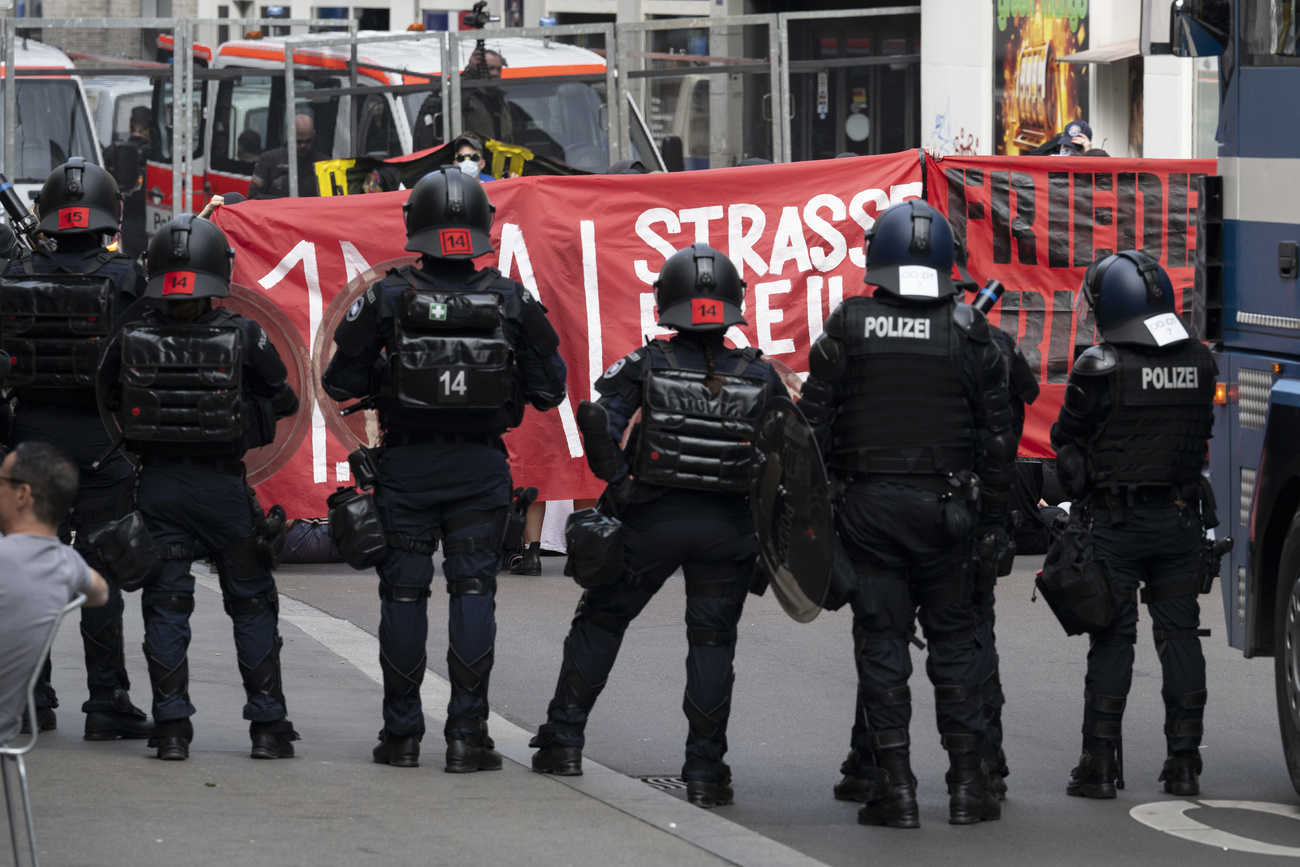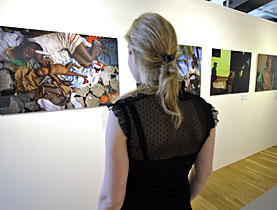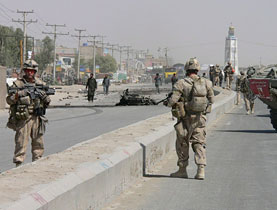Kabul conference is a “step in right direction”

An international conference on the future of Afghanistan has backed President Hamid Karzai taking greater control of the country’s affairs.
United Nations Secretary-General Ban Ki-moon, present at the Kabul conference, said it had set out the most concrete vision for the country yet. Meanwhile a Swiss expert on Afghanistan, Paul Bucherer, described it as a “step in the right direction”.
Tuesday’s gathering was attended by representatives of 70 states, including Switzerland. At the close, a declaration was issued confirming the international community’s support for several points in Karzai’s long-term strategy.
It accepted Karzai’s goal for Afghan forces to be in charge of security nationwide by 2014 and backed a reconciliation plan with the Taliban.
Karzai’s peace plan foresees tapping into Taliban rebels that are fighting for money rather than ideologies, as a way out of the conflict.
The conference declaration did not set a schedule for the withdrawl of foreign troops. But Nato Secretary-General Anders Fogh Rasmussen did say that troops would stay after the period of transition to provide a “supporting role” to Afghan forces.
The conference also supported Karzai’s appeal to channel 50 per cent of development aid through the government within the next two years, as opposed to the 20 per cent at present.
Karzai told the conference that the country’s finances were running dry and asked for greater control of a multi-billion dollar aid budget that goes to Afghanistan. Shortly after the conference the International Monetary Fund announced it had concluded an agreement for a new development programme financed by a $125 million loan to Kabul.
The fact that the conference was held in Kabul for the first time was significant, said Bucherer, the founder of the Afghanistan Institute in Basel which promotes Afghan issues and cultural heritage.
“This is already a positive signal psychologically. It shows that the nations involved strongly intend to hand over the responsibility to the Afghan government,” he told swissinfo.ch.
Bucherer, who has travelled to the country for the past 40 years, says he’s optimistic that the conference will help propel Afghanistan towards change. And he says Karzai is the “best person we have at hand for this difficult job”.
Taliban peace plan
The conference comes at a critical juncture: Nato and Afghan forces have launched a major operation to drive the Taliban out of their strongholds.
There are around 150,000 Nato-led troops in the country, and the US, which has the biggest contingent, intends to pull out from July 2011 – a factor which United States Secretary of State Hillary Clinton told the Kabul conference underlined the importance of rapidly transferring responsibility for the country to Afghan forces.
Karzai proposes boosting the national army to 170,000 soldiers. Up to 36,000 former Taliban militants would be reintegrated into the forces.
The president plans to hold talks with moderate Taliban factions. The government will try to gain insurgent trust by reaching out to disaffected fighters through tribal and religious leaders.
Albert Stahel, a security expert from Zurich University and frequent visitor to Afghanistan, told swissinfo.ch: “You have to try to enter into negotiations [with the Taliban] – if only to find out what exactly they want. Actually what they want is total power. But it will probably end up being a power sharing situation.”
Outside influence
The Taliban that existed in 2001, when the war began, is no longer, explained Bucherer. Today it consists of five or six different factions with different motivations, and these all need to be addressed.
“If we don’t take these different groups separately, then we will never arrive at a solution. We cannot integrate all kinds of so-called Taliban but we can integrate several groups of Taliban that are not terrorists or are not paid for by foreign powers to create insecurity,” he said.
Around 90 per cent of today’s so-called Taliban could be integrated into society, he notes.
Pakistan’s influence is also crucial, says Stahel. “Pakistan is an important manipulator and is supported by money from Saudi Arabia. We can therefore talk of a Pakistan-Saudi-Taliban network. Pakistan is striving for a part of the power in Afghanistan.”
Bucherer adds: “Some people say that the presence of the foreign troops is a big part of the problem. But the real problem as I see it is the influence from abroad. Specially the influence from Pakistan.”
For Bucherer it is worth remembering that the quality of life in the country has been gradually improving over the past 40 years and what is equally important is that citizens need to be empowered and start earning decent salaries.
“Education, health, transportation has never been as good as it is now. Certainly there are many areas where much has to be done. But in some aspects Afghanistan is not so bad compared with how it was before.”
Jessica Dacey, swissinfo.ch (With input from Renat Künzi)
With violence in Afghanistan at its worst in the 9-year war, the Afghan government and military commanders are looking toward a political solution to end the fighting. Some 1,600 Afghan elders and religious leaders endorsed a plan by President Hamid Karzai at a peace gathering in June to bring fighters in from the cold.
The reintegration process starts after the Kabul conference (where Afghanistan gained official international endorsement for the programme).
The process itself will consist of three stages. Firstly, the government will try to gain insurgent trust by reaching out to disaffected fighters through tribal and religious leaders.
This will be followed by a process where insurgents are vetted, disarmed and provided with security. Finally, the government plans to provide jobs for those who defect.
Key to the whole process is to gain the insurgents’ confidence by providing them security and allowing them to rejoin their communities with dignity.
Within the Afghan government there have been disagreements about the process. Last month, the former head of the country’s intelligence department resigned in protest. Some parliamentarians have also expressed concern over the plan.
The process has also been criticised by experts and rights groups. Many argue the process is doomed to fail because it relies on the premise that most insurgents are simply fighting for the money and ignores the fact that many of them have legitimate grievances with the government.

In compliance with the JTI standards
More: SWI swissinfo.ch certified by the Journalism Trust Initiative













You can find an overview of ongoing debates with our journalists here . Please join us!
If you want to start a conversation about a topic raised in this article or want to report factual errors, email us at english@swissinfo.ch.